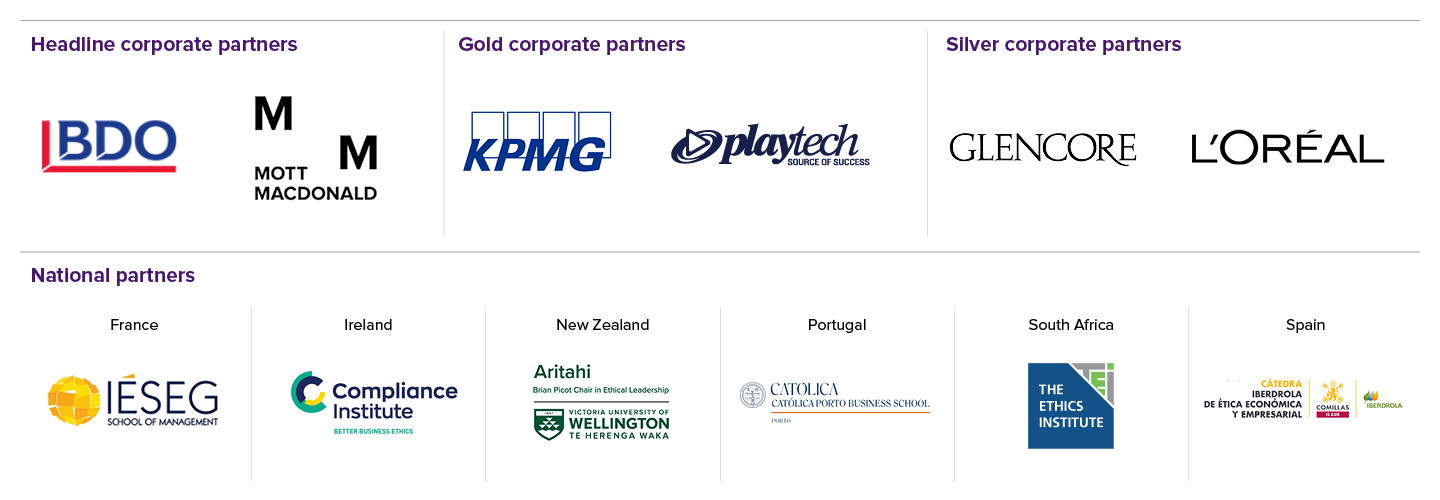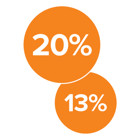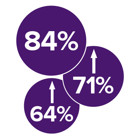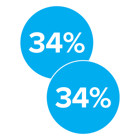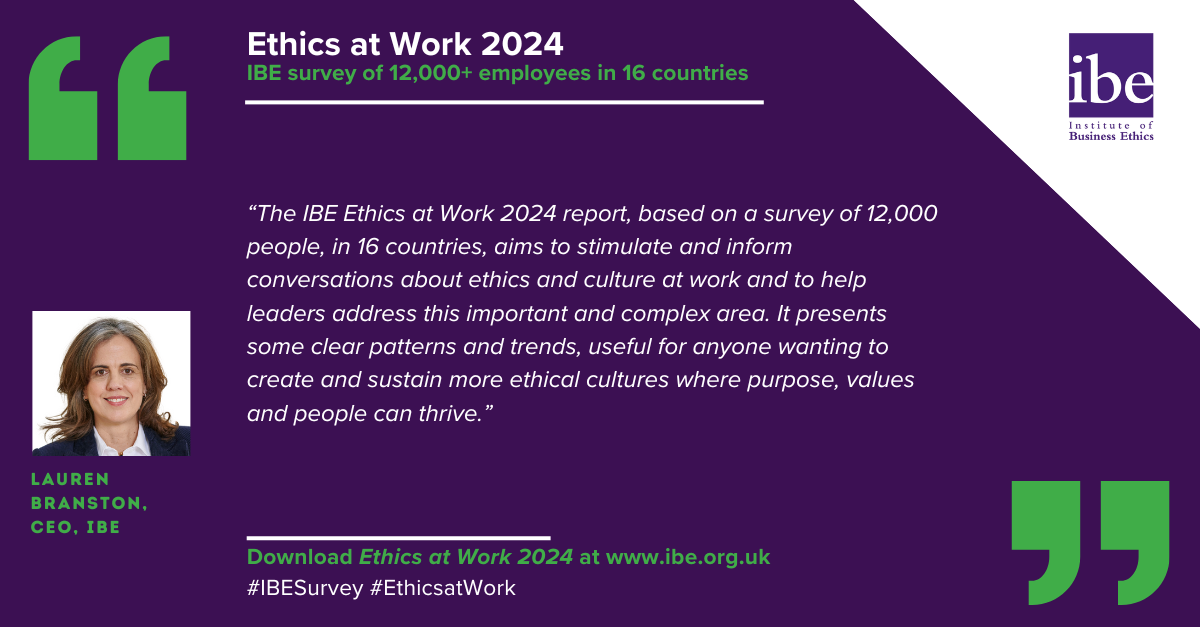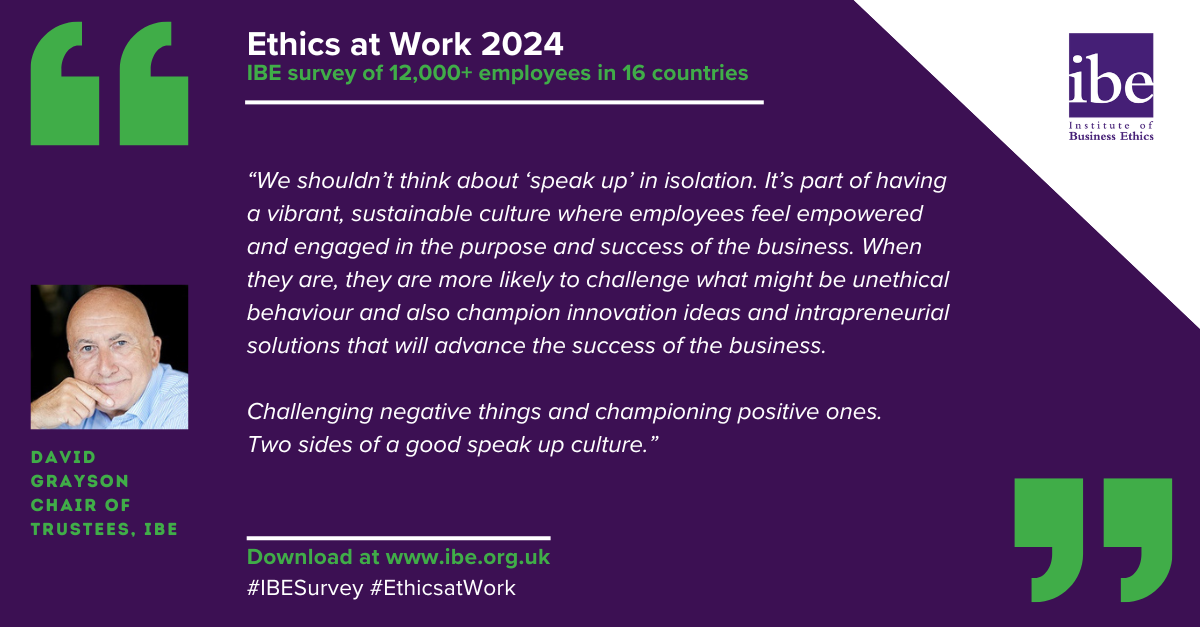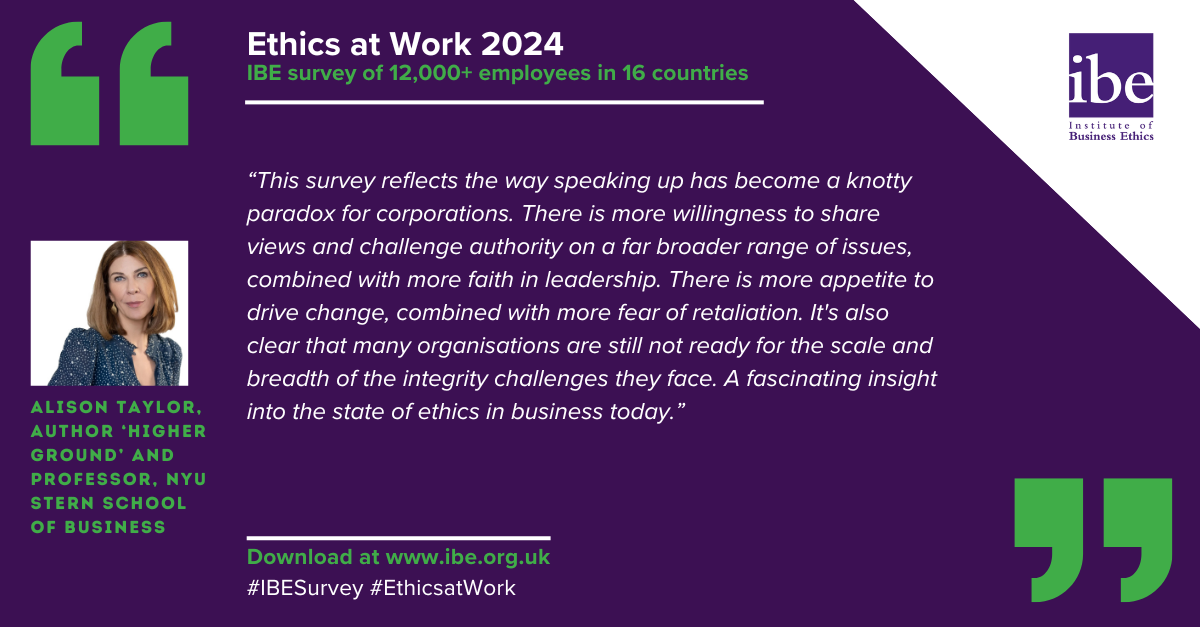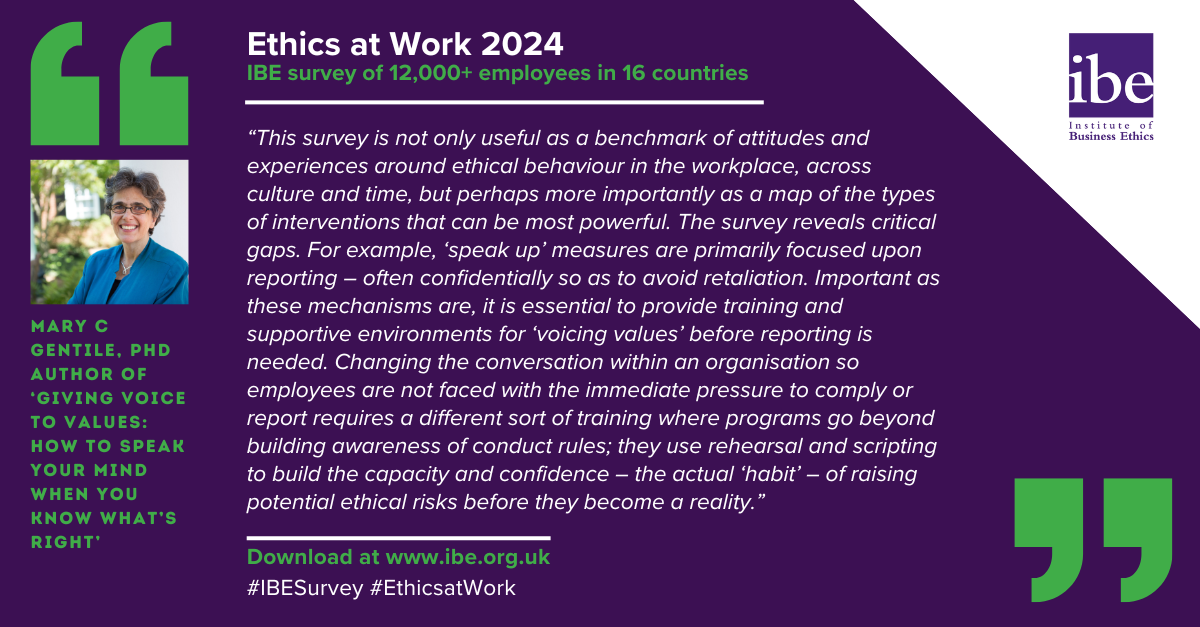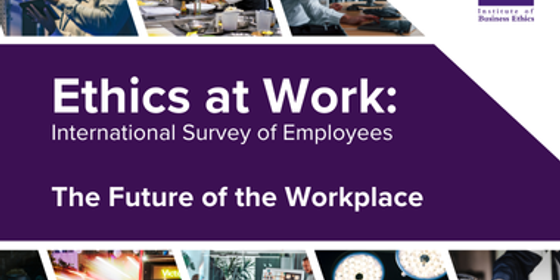Our Ethics at Work 2024 report is based on a survey of over 12,000 working adults in 16 countries. Where available, the 2024 results were compared with historical survey results from 2021, 2018 and 2012, with a demographic spread achieved across age, gender and industry types, and respondents selected to reflect the composition of the working population.
The presence of a ‘supportive environment for ethics’ – a working culture perceived by employees to be supportive of ethics – was correlated with a range of ethical actions by individuals and organisations.
Building a supportive environment for ethics matters
The findings raise several questions about wider management issues with which building blocks of ethics intersect, which require further investigation. These include: organisational culture; corporate governance; leadership commitment; diversity, equity and inclusion; employee engagement; communications, including social media; and corporate social responsibility and sustainability.
These findings also show a role for ‘ethics’ in some important and emerging challenges for organisations. We know that ‘high psychological safety’ (where speaking up is supported) is important when trying to form a ‘beyond compliance’ culture. This is important in areas such as responsible AI, where regulation is widely recognised to be still catching up. In the same vein, as organisations work out ‘how to’ comply, creating an ethical culture matters. For example, the new EU sustainability regulations will require better and more meaningful collaboration and challenge between organisational functions.
We will be delving deeper into these areas in the near future. To stay informed, please log in to your profile and ensure your contact preferences are set to allow email, or if you haven't already, create a free profile.
Country reports
Additional reports
Acknowledgements
The IBE would like to thank the following organisations for their generous financial support of this survey:
